Three gradauate students from Taiwan Tech winning international awards
The master's students Qin-Chao Zhou, Wan-Xuan Wu, and Xiao-Tong Liu from the Department of Architecture at Taiwan Tech have stood out in the spotlight of the Ministry of Education's technical and vocational education. Wan-Xuan Wu and Qin-Chao Zhou's work, titled “RE- INTERTWINE: Rethinking Beirut Port”, has won numerous international awards, earning them the Outstanding Competition Award. On the other hand, Xiao-Tong Liu obtained an architect license during his academic studies and was honored with the Outstanding Technical and Vocational Award for his achievements as a “License Master”. These young scholars will continue to pursue their passion, furthering their learning in both the industry and academia, gradually shining in the field of architecture with their own brilliance."
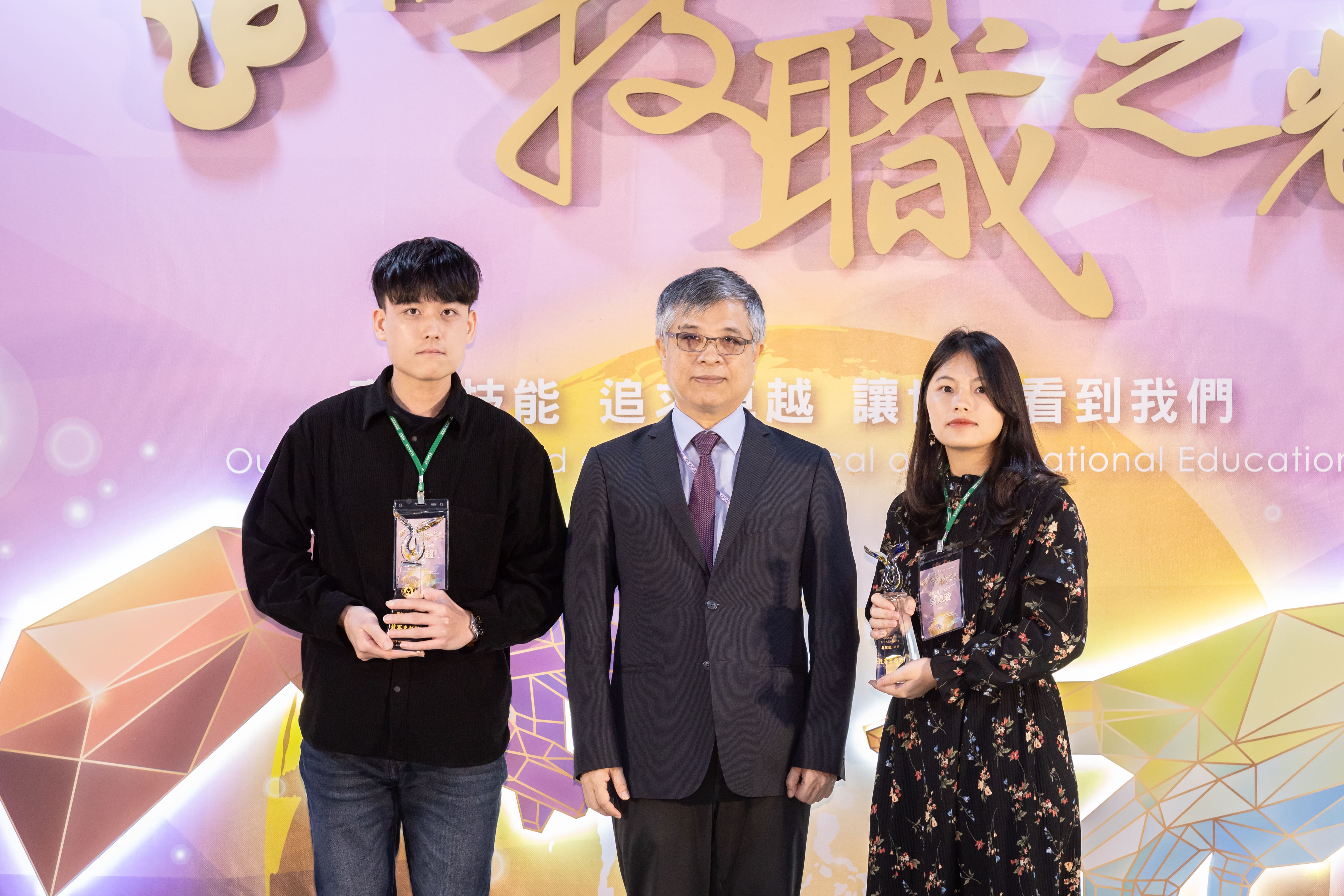
The master's students from the Department of Architecture, Qin-Chao Zhou (left) and Wan-Xuan Wu (right) were honored with the Ministry of Education's Outstanding Competition Award in technical and vocational education.
Influenced by their university graduation project, Wan-Xuan Wu and Qin- Chao Zhou developed an interest in public spaces and urban design.
During their studies at the Department of Architecture, Taiwan Tech, their project titled “RE-INTERTWINE: Rethinking Beirut Port” became their first urban planning and design endeavor. Starting from the reconstruction of the Beirut Port in Lebanon after the explosion, they reimagined the development of the entire Beirut Port area. Through the creation of a new public transportation system, they aimed to establish a diverse network of urban living nodes, connecting the new and old urban street layouts. This design facilitates a harmonious neighborhood relationship between the new port area and the existing urban blocks.
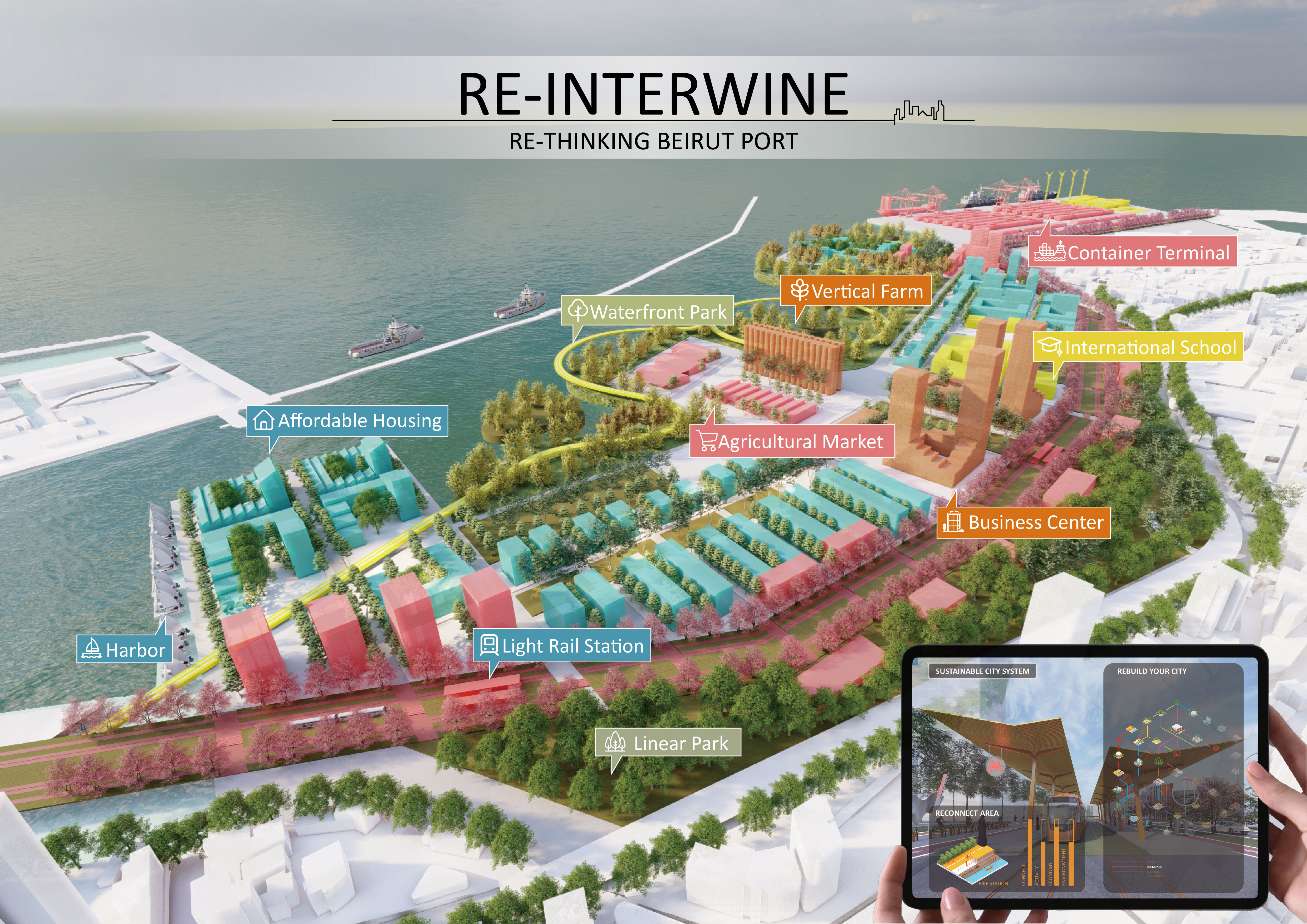
Wan-Xuan Wu and Qin-Chao Zhou, considering economic, design, construction, and operational aspects, strategically planned the reallocation of the Beirut Port area.
They departed from traditional top-down and bottom-up urban design approaches and instead adopted a collaborative urban planning and design strategy. This approach allowed citizens to participate in the decision- making process for certain open spaces, creating a city environment that aligns with public interests and environmental inclusivity. Their project, "RE-INTERTWINE: Rethinking Beirut Port," also received the World Champion Medal in the Comprehensive Expression Ability category (Two-League) at the 2022 WASA World Architecture Student Awards.
In addition, during the global spread of COVID-19 in 2020, they designed "REGENERATE," a modular hospital addressing the shortage of negative-pressure wards and meeting future emergency medical needs, allowing users to build the corresponding mobile medical spaces as needed, demonstrating their determination to address global issues. "REGENERATE" has also received multiple international design awards, including the German Red Dot Award, iF Design Award, and the American Architecture MasterPrize. These award-winning experiences inspire them to continually explore solutions for global urban environmental and social issues, aspiring to create a more equitable societal environment through design.
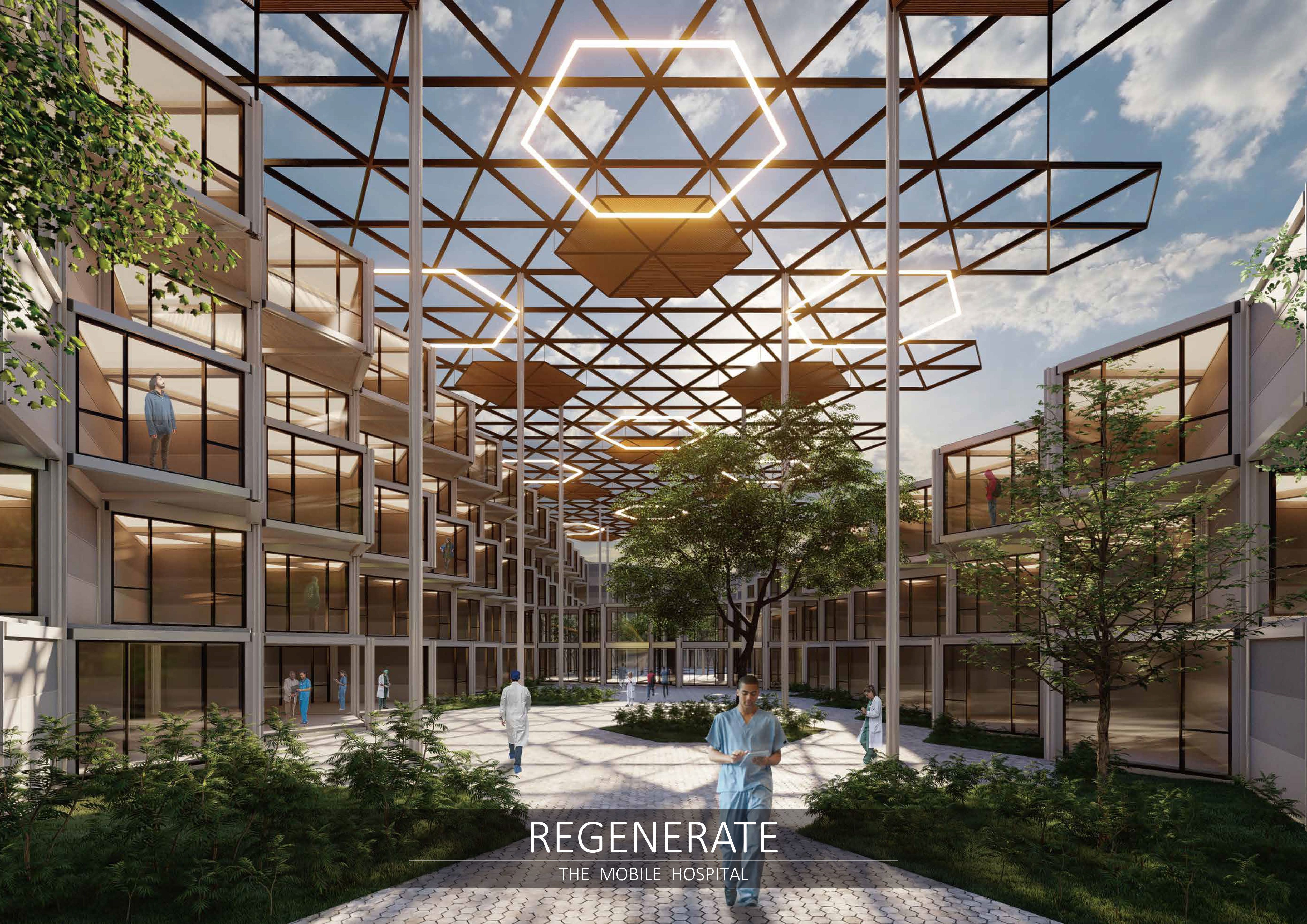
In 2020, as the COVID-19 pandemic swept across the globe, Wan-Xuan Wu and Qin-Chao Zhou designed "REGENERATE" to address issues related to the shortage of medical resources and negative-pressure isolation rooms.
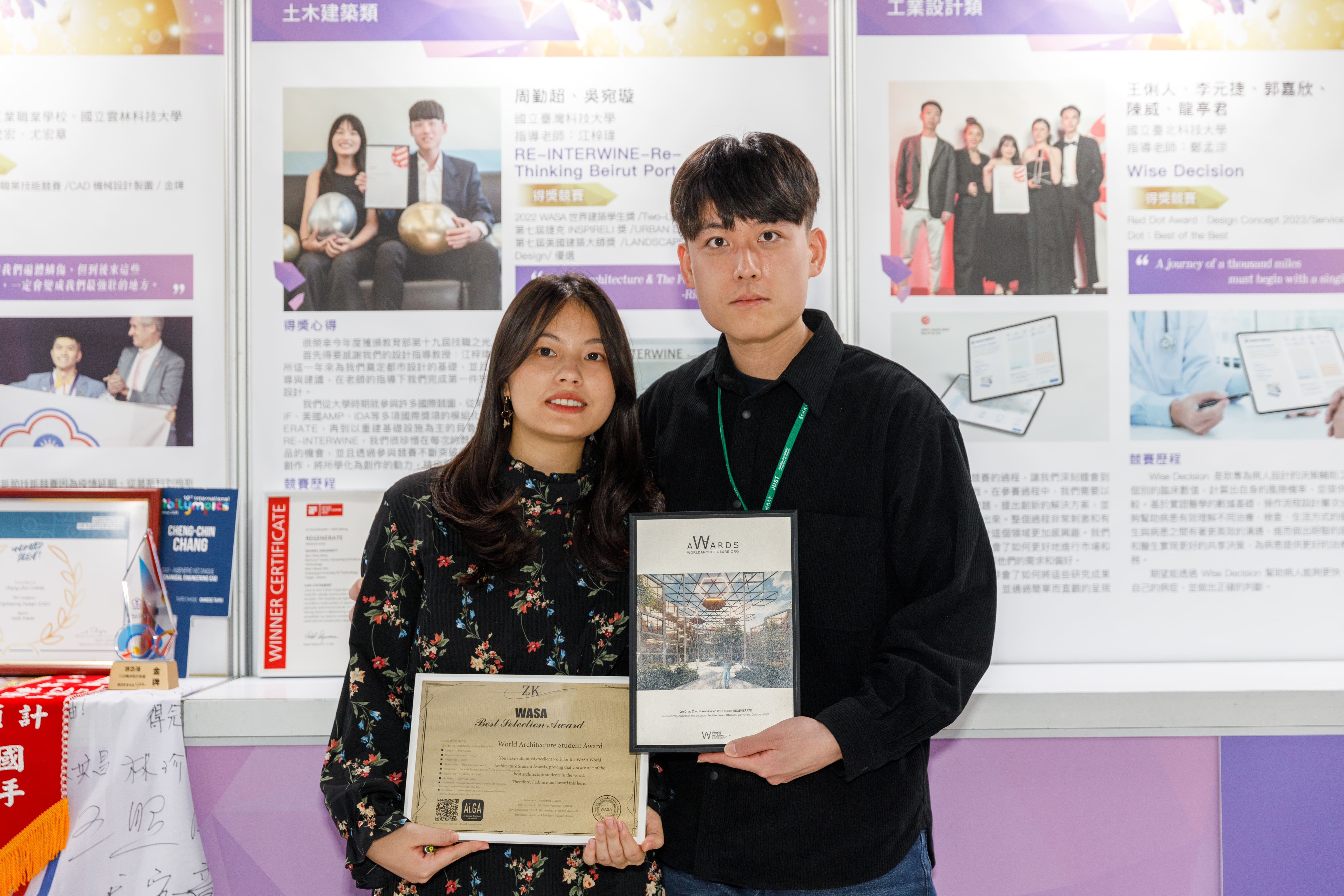
Wan-Xuan Wu (left) and Qin-Chao Zhou (right) received numerous international awards during their academic journey, earning recognition for their outstanding abilities.
Qin-Chao Zhou shared that his path in the Department of Architecture wasn't always smooth, and he had considered the possibility of changing directions. However, with the assistance of Associate Professor Yan-Ting Chen, he participated in international competitions, received recognition from judges, and regained confidence and passion for architecture. He found a new direction and continued to move towards his goals. Both mentioned the importance of courses at Taiwan Tech, such as research methods, parametric modeling and design, sustainable structural design, and layout design. These courses laid a solid foundation for them during their graduate studies, helping them develop coordinated design skills across multiple disciplines, including urban planning, architecture, landscape, and interactive design.
Wan-Xuan Wu and Qin-Chao Zhou emphasized the need to find a source of fulfillment in architecture and establish personal goals. They encouraged the mindset of "Stay Hungry, Stay Foolish" to go further on the path of architecture.
Obtaining an architect's license in Taiwan is challenging, with an acceptance rate of less than 10% each year. However, Xiao-Tong Liu, a master's student in the Department of Architecture, passed the specialized examination for professional and technical personnel during her academic period, successfully obtaining her architect's license ahead of her peers. She generously shared her tips for exam preparation, mentioning the importance of choosing courses related to the exam content so that she can review exam content while attending class.
Xiao-Tong Liu pointed out that when preparing for exams, you need to allocate your study time properly. She emphasized the need for self- discipline, efficiency in studying, and proper relaxation to maintain mental well-being while pursuing goals. She also expressed gratitude to Professor I-Hsu Chiu for providing design thinking that aligns with the industry and offering valuable resources to help her thoroughly prepare for the exam.
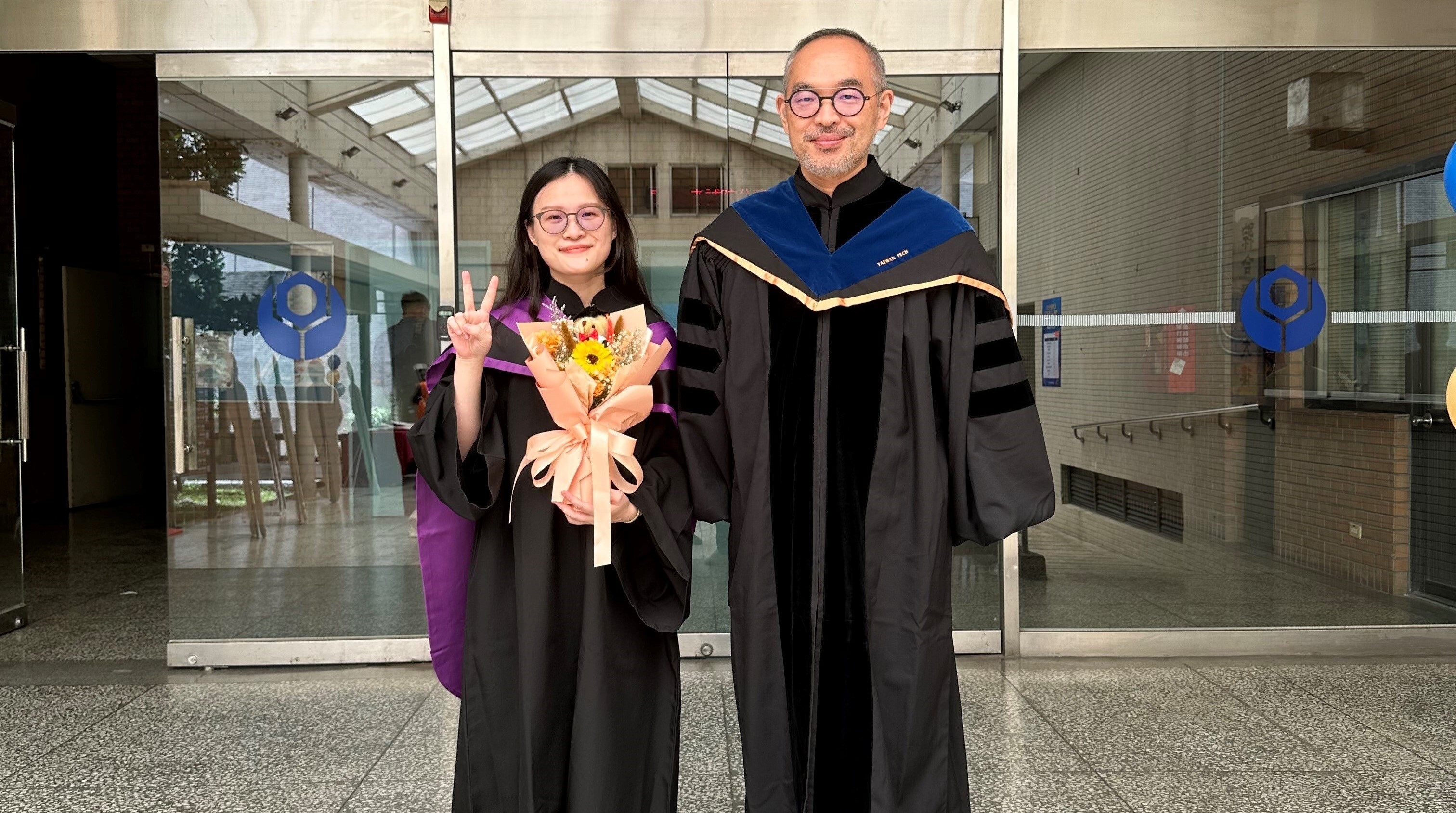
Xiao-Tong Liu (left) and her mentor, Professor I-Hsu Chiu from the Department of Architecture (right), in a photo together.
In addition to obtaining her architect's license, Xiao-Tong Liu's practical skills are also noteworthy. She won the first prize in the HURC Challenge and received the Student Winners award in the Social Housing category at the Architecture MasterPrize (AMP), an international competition in the United States. Xiao-Tong Liu mentioned, "To become an architect, one must have an unwavering passion. The field of architecture is broad and profound. It's crucial to maintain curiosity about different things and make continuous efforts to learn and understand".
They aspire to showcase more outstanding works on the international stage, injecting youthful energy and creativity into the field of architecture.
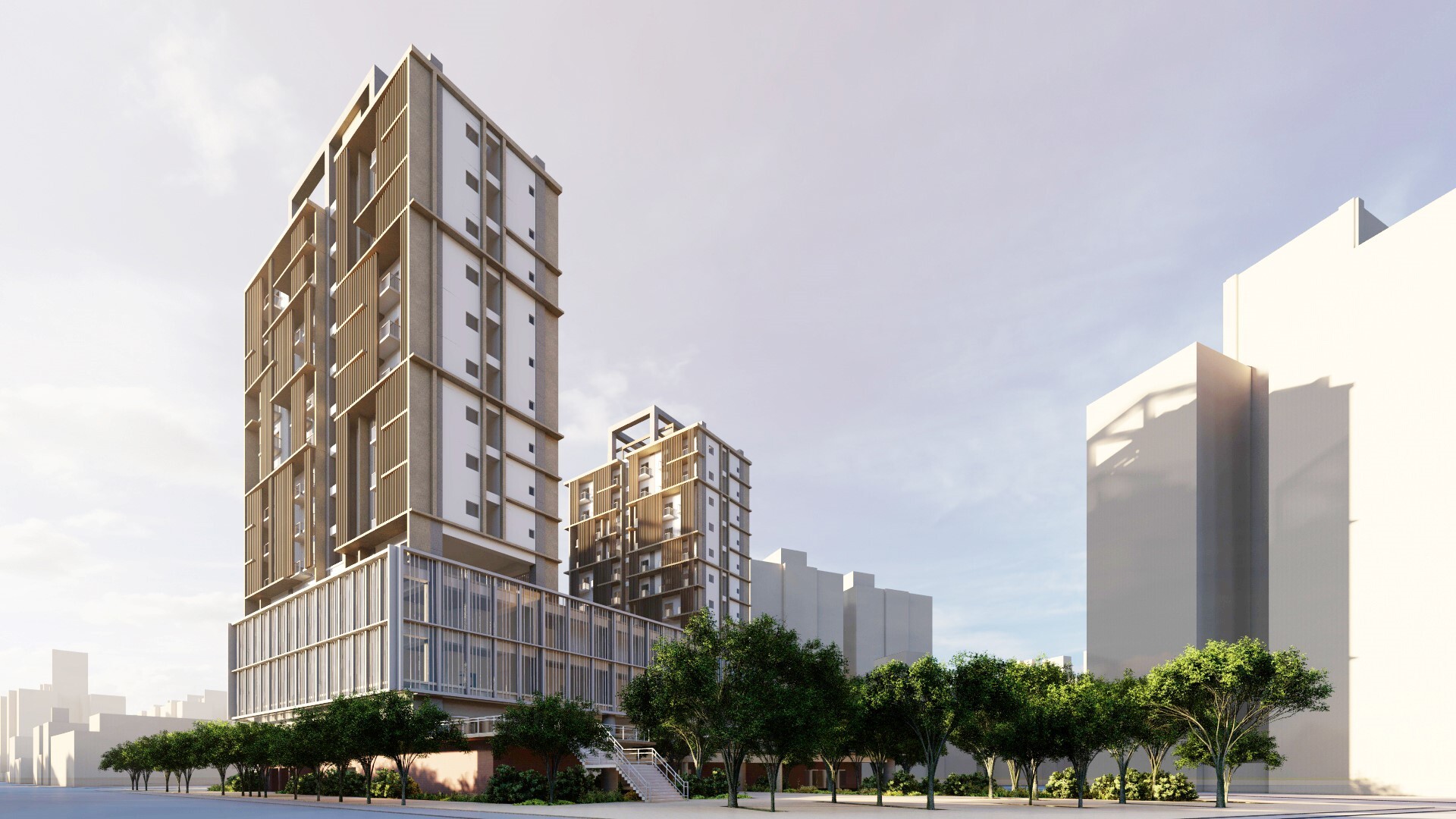
Xiao-Tong Liu's graduation thesis explores the possibilities of modular housing unit design in the implementation of the Southern Airport Phase II.




